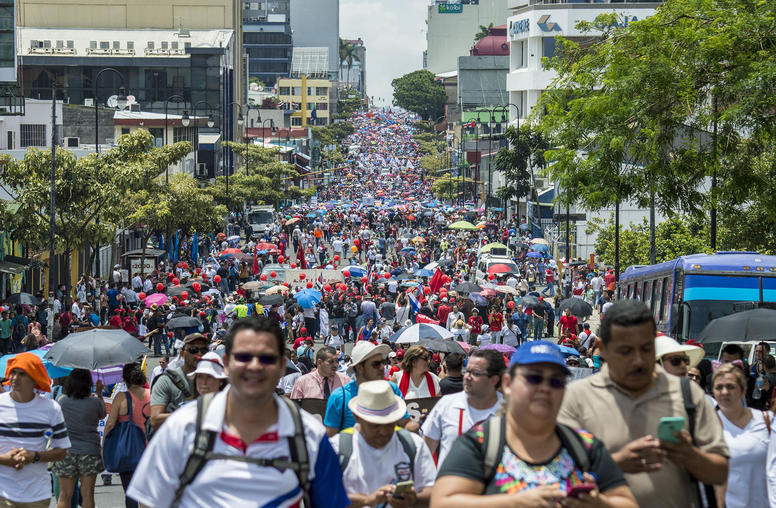Democracy Dividends: A Fireside Chat with Costa Rica's President Rodrigo Chaves
In recent years, democracies have faced mounting challenges that underscore the urgency of delivering meaningful benefits to their citizens. The need for democracy dividends has never been more pronounced, as nations throughout the Americas and the globe encounter internal and external pressures that test the resilience of democratic societies. Costa Rica has traditionally been one of the most stable of Latin America’s democracies, with a history of a strong middle class, little violence in politics and strong institutions. However, it has recently faced many of the same challenges as other countries in the region, as economic growth has slowed and politics have faced pressure from migration and transnational threats.
On August 29, USIP hosted Costa Rica’s President Chaves for a discussion highlighting the crucial role of democracy in fostering enduring peace, stability and comprehensive societal growth. The conversation looked at how countries can counter these pressures by prioritizing democratic values and ensuring that the dividends of democracy are broadly felt and contribute to the well-being of all citizens to foster a harmonious and prosperous future.
Continue the conversation on Twitter using the hashtag #CostaRicaUSIP.
Speakers
Rodrigo Chaves
President of Costa Rica



